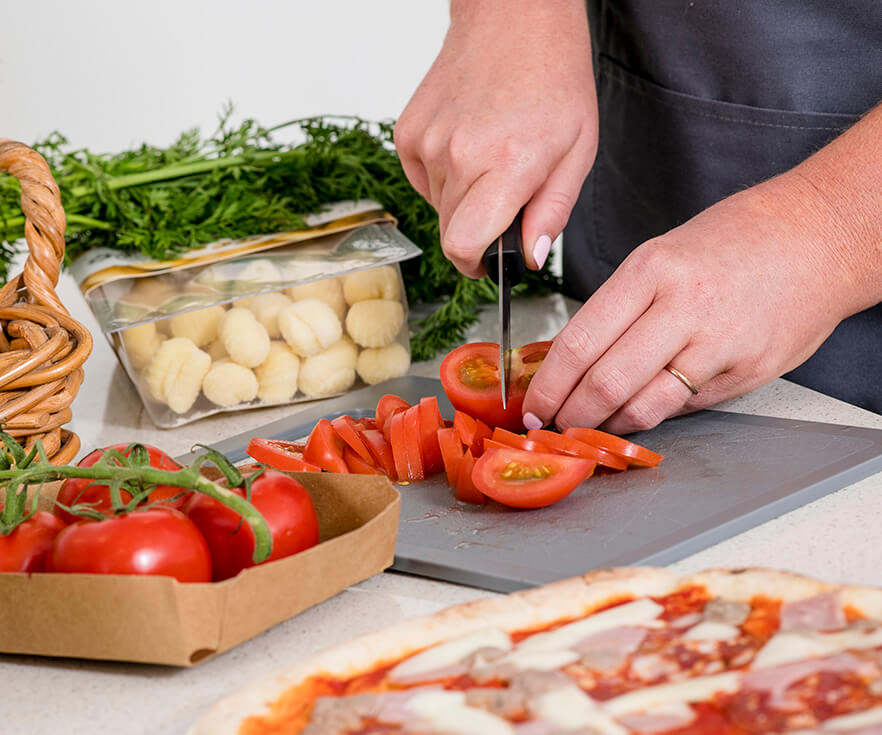
Good food is more than fuel. It powers rehabilitation, sharpens thinking, and lifts morale. Yet for many veterans living with disability, cooking every day can feel impossible. Their children, family or friends, who often coordinate supports, are juggling work, family, and paperwork. The National Disability Insurance Scheme (NDIS) recognises that challenge. Under Core funding, it will pay for meal preparation and delivery supports when cooking is unsafe or unmanageable.
This guide explains how those supports work, the rules around costs, and why choosing HomeFront gives veterans tasty, healthy meals without the admin headache.
Meal preparation under the NDIS covers two linked supports:
The scheme does not pay for raw ingredients. Food is classed as an everyday expense that all Australians must cover. To keep invoicing simple, most providers apply a 70 / 30 split: 70% of the total cost is labour and delivery (NDIS pays), and 30% is individual ingredients (you pay).
Yes, if the support is reasonable and necessary for your disability. You will need evidence that cooking independently is impossible or risky, for example, tremors, mobility limits, or cognitive fatigue. When approved, veterans can direct Core funding toward:
Remember, the NDIS only funds the labour component. Individual ingredients remain your responsibility.
| Step | Action |
| 1 | Raise it during your planning or review meeting. Explain why cooking is difficult or unsafe. |
| 2 | Gather evidence. Occupational therapist or dietitian letters carry weight. |
| 3 |
Ask HomeFront for an eligibility check before the meeting. We translate clinical notes into NDIS-friendly language and outline likely meal costs. |
| 4 |
Clarify invoice requirements. HomeFront issues NDIS-specific invoices that separate the 70% labour charge from the 30% ingredient cost. |
| 5 |
Claim the support. |
HomeFront’s trained professionals cook in your home so meals suit your taste, cultural background, and texture needs. You choose the recipes, set a regular visit day, and relax while we:
No lock-in contracts or surprise fees. Visits are scaled to the funding in your NDIS plan, and there is flexibility to add gardening or domestic cleaning on the same day if that makes life easier.
Meal prep is only one part of nutrition supports. The scheme may also fund:
All requests must pass the reasonable-and-necessary test, but veterans often gain approval with clinical backing.
No. Ingredients such as meat, rice, or olive oil are everyday living costs that every household must cover. The NDIA repeats this rule across its guidelines, and you are expected to purchase this yourself or request that providers charge you directly for that portion of the service.

Coordinating services for a parent can drain time and energy. A streamlined routine reduces stress:
HomeFront handles the paperwork, so you reclaim evenings and weekends.
| Item | Who pays? | How it appears on the invoice |
| Labour to plan, cook, clean | NDIS funds meal preparation | Core: Assistance with Daily Living (support item 01_023_0120_1_1) |
| Ingredient cost | Veteran or family (everyday expenses) | “Individual ingredients” line; if supplied by a provider. |
| Travel to shop or deliver | Paid by NDIS if related to meal prep | Separated in kilometres |
| Containers / nutritional supplements | Usually participant cost unless prescribed | Itemised as “additional consumables” |
HomeFront quotes the total cost up-front, so you can see the 70 / 30 split before booking.
The scheme can cover the delivery fee when a participant is unable to shop safely, but the groceries themselves are not funded. HomeFront can assist by pairing a support worker with supermarket Click & Collect to keep costs down.
If a veteran uses Short Term Accommodation (respite), meals are normally included in the STA rate. In that scenario, you would not claim extra meal-prep support because double-funding is not allowed.

Call 1300 20 60 40, or use our quick Get Started form. HomeFront will:
Eating well should be simple. Let HomeFront handle the cooking and paperwork so veterans can focus on recovery and families can focus on living.